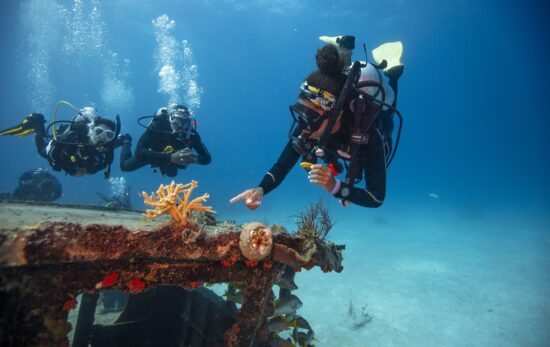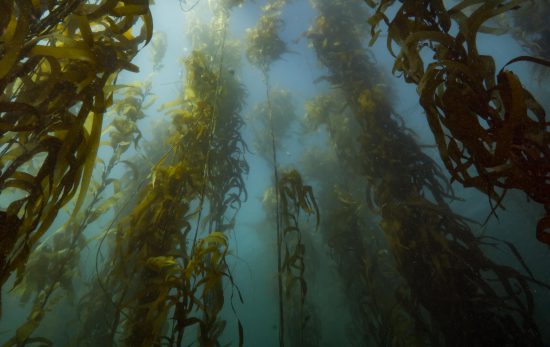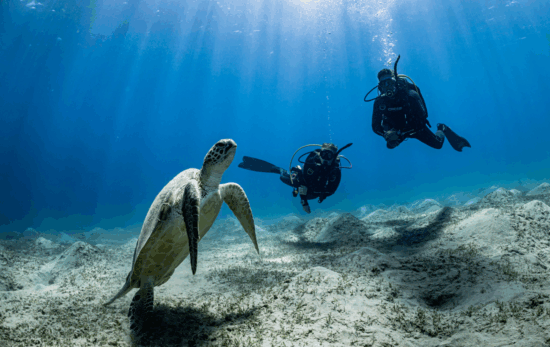As a leading global ocean exploration and diving organization with a longstanding commitment to conservation, PADI is in a unique position to set high standards for dive industry sustainability. From reducing energy use at our headquarters to supporting our global community of divers and partners to dive in environmentally friendly ways, we are continuously working to reduce our global footprint, achieve sustainability in the dive industry, and save the ocean.
You know the saying, “talk the talk, walk the walk?” Well, here at PADI, we aim to “talk the talk and dive the dive!”
PADI’s Pillars of Change
PADI’s Pillars of Change reflect our guiding values and commitments to address Ocean Conservation, Industry Sustainability, and People & Humanity. It’s important to strive for industry sustainability to reduce the global environmental footprint of the dive industry because diving is one of the largest and fastest growing recreational activities in the world!
We believe that the environmental impact of each part of the dive supply chain (i.e. dive travel, marine tourism, divers and dive operators) can be reduced, and we are aiming to create and support programs that help accomplish this goal.
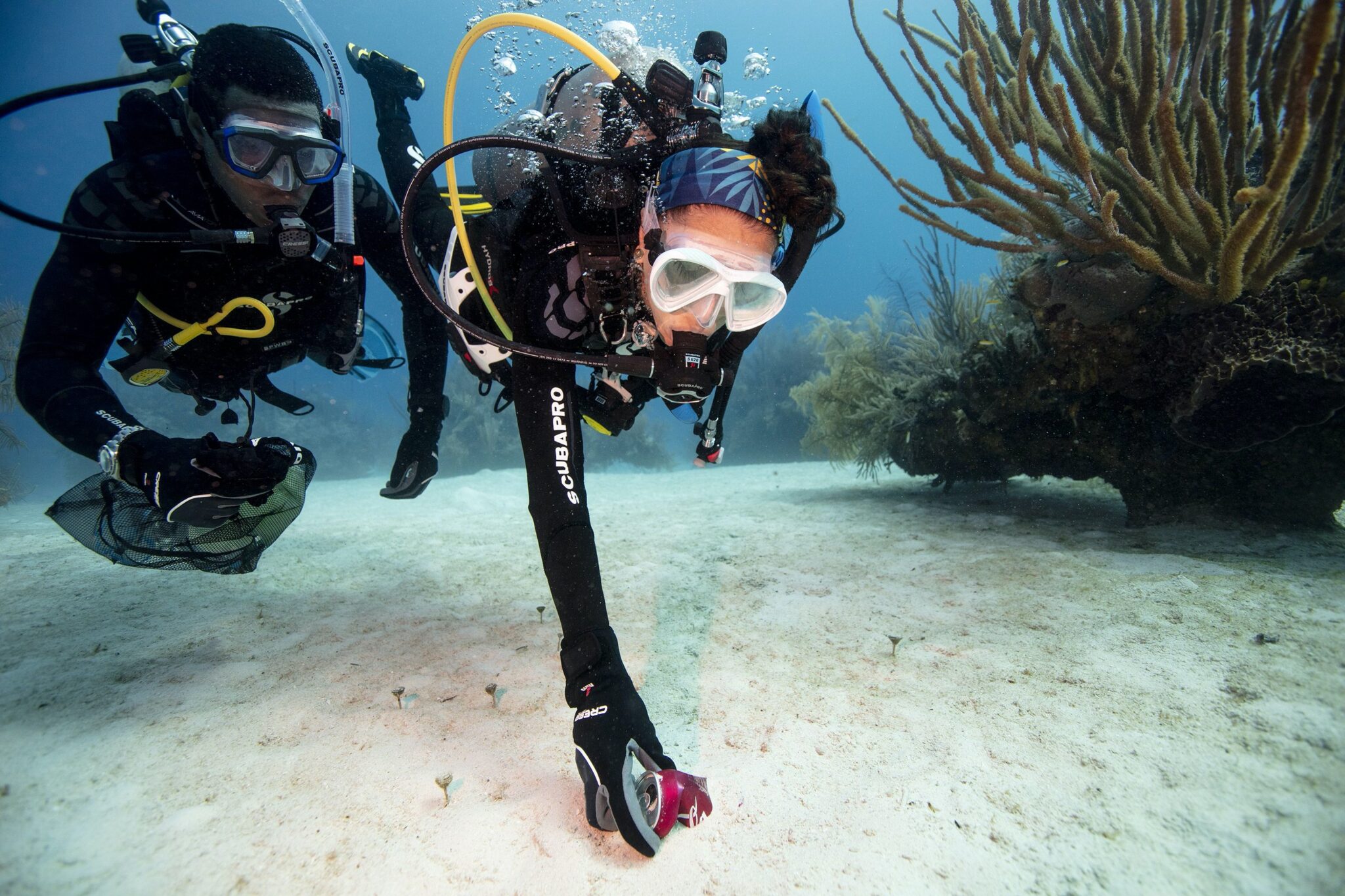
Global Action – Our Supply Chain and Supporting Partners
So, what is PADI doing to create and promote dive industry sustainability? Many things! For example, the following changes have been implemented across some or all of PADI’s regional offices to reduce the impact of our supply chain as we send materials to train and educate divers across the globe:
Reduce Paper & Plastic
- Invest in and promote digital learning solutions
- Eliminate individual plastic wrapping, virgin plastic packaging on product deliveries
- Reduce the thickness of most vinyl decals by 1mm
- Moving to Digital products: Currently 80% of courses taught are e-learning without the need for any printed or paper materials
Use Recycled and/or Sustainable Material
- Certification cards and plastic slates/tables are manufactured using 70% recycled plastic
- PADI boxes are made from recycled materials, are kraft brown to reduce ink usage and bleaching, and all void filling material is starch-based
- Use vegetable-based inks on printed materials
- Use FSC paper for printed materials
Reduce Carbon Footprint
- Prioritize efficient shipping methods via ocean
- Use DHL’s GoGreen Solutions for shipping in Europe, Middle East and Africa
- PADI is taking proactive measures its environmental impact by undertaking a comprehensive carbon audit, marking the initial stride towards achieving net-zero emissions. We are proud to announce the completion of the audit for phase I and II emissions, setting the groundwork for our ambitious roadmap towards carbon neutrality by 2030
Promote Eco-Friendly Dive Travel
- The PADI Eco Center is the dive industry’s most complete environmental accreditation for dive centers. To achieve this rating, operations do not only have to demonstrate an exemplary level of environmental best practice, but also be a part of PADI Aware’s Adopt the Blue. The environmental impact score is measured with the Reef-World Foundation’s Green Fins Initiative making this the only accreditation within the diving industry being based on an independent audit
- PADI Travel provides clear labeling on Eco Centers, 100% AWARE, Green Star, and Green Fins operators
- Eco Travel and Green Fins Collections to help dive travelers identify sustainable travel options
- Form partnerships with other mission-driven organizations, like The Ocean Foundation, giving divers options to support other organizations also working to protect the ocean

Local Action – PADI Headquarters in California
We’ve also made these changes at PADI headquarters in California to promote sustainability at home:
Reduce Water
- Incorporate drought resistant plants and artificial grass
Reduce Energy, Use Renewable Energy
- Solar powered pool heater
- Use energy efficient LED bulbs in the building and parking lot
- Install occupancy sensors in all offices which automatically shut off lighting if motion is not detected
- All windows are tinted with reflective coating, the building roof is coated with white reflective paint to reflect UV light and reduce power needed to cool the building
Reduce Paper Use, Single-Use Items, and Food Waste
- Restrooms and breakrooms use recycled paper products
- Only reusable drinkware and utensils are provided in breakrooms
- Recycle bins and food waste bins are staged throughout the building
Sustainable Materials, Practices
- Use coffee machine supplier with a strong eco-focus and fair trade/organic coffee
- Use ‘green’ cleaning products
- Workwear provided to PADI office staff is 100% organic cotton and/or made from recycled materials
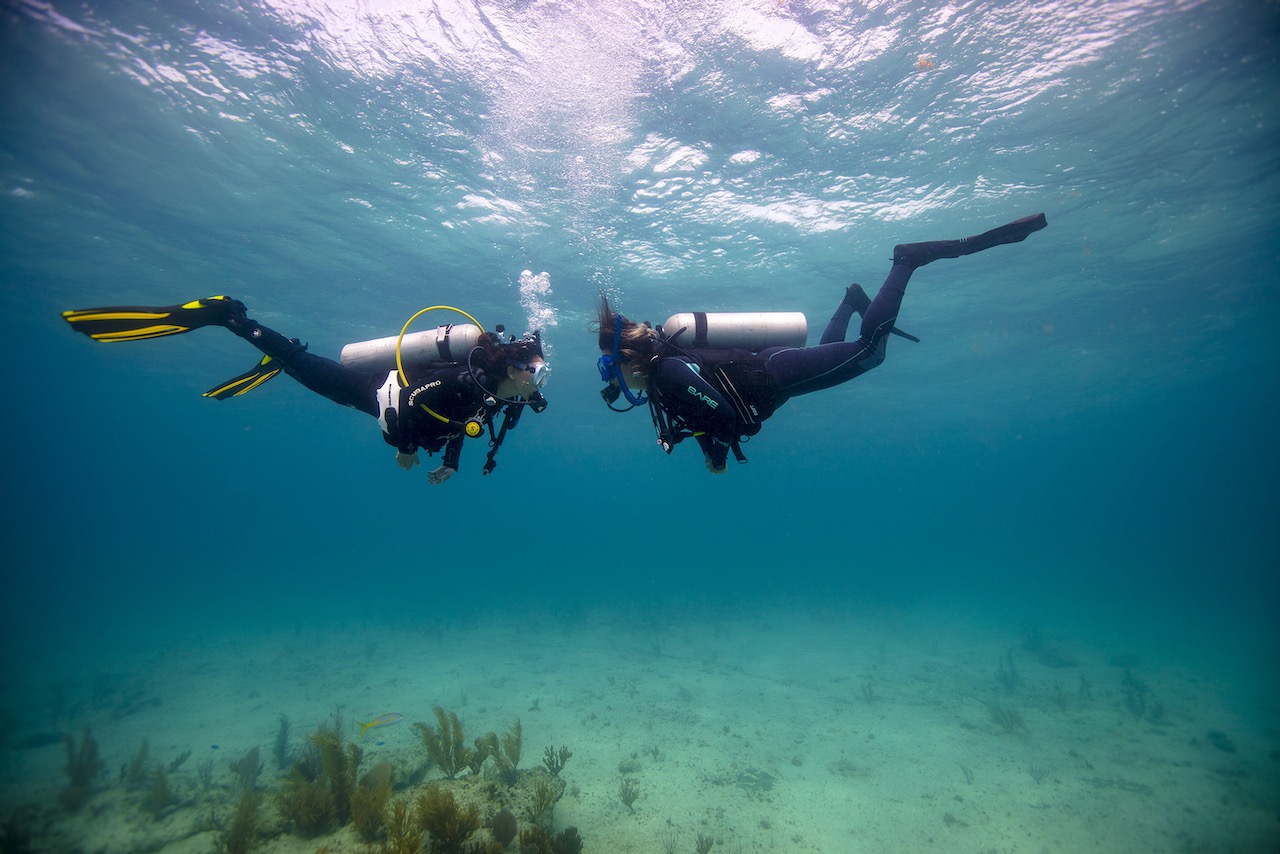
Seek Adventure. Save the Ocean.
Together, we can and must work to improve our practices at home and globally to create a sustainable dive industry and protect the ocean we all love. Here are some simple ways for divers around the world to get involved in industry sustainability too:
- Take the Save the Ocean Pledge and become an Ocean Torchbearer
- Book your next dive with a PADI Eco Center
- Become a PADI AWARE Dive Against Debris Diver
- Donate to PADI AWARE Foundation
